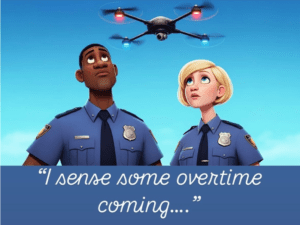Representatives Katherine Clark and Chip Roy
House Democrats have united in opposition to a Republican-supported election bill that would require voters to provide proof of citizenship to participate in federal elections.
Republicans are advocating for the Safeguard American Voter Eligibility Act (SAVE Act), which aims to amend the National Voter Registration Act of 1993. This amendment would require states to verify citizenship from voters for federal elections and remove noncitizens from voter rolls.
Democratic leaders are urging their members to vote against the bill, arguing it would impose “an extreme burden on countless Americans” to vote.
“House Republicans continue to irresponsibly question the credibility of our elections,” wrote the office of House Minority Whip Katherine Clark, D-Mass., in a “whip question” memo. “Despite numerous recounts, court challenges, and investigations by conservative think-tanks, there has been no evidence of the widespread fraud this bill claims to address. It is already illegal for noncitizens to register or vote in federal elections.”
The whip question memo encourages Democrats to vote “NO” on H.R. 8281. The memo seems to be effective as none of the 104 cosponsors are Democrats.
Conversely, Republican House leadership is promoting the bill’s passage, with House Speaker Mike Johnson, R-La., emphasizing on social media that the SAVE Act would protect elections by ensuring only American citizens can vote in federal elections. Johnson outlined that the law would require state election officials to verify citizenship before providing voter registration forms and accept various documents to facilitate the registration of citizens. It would also grant states access to federal databases to remove noncitizens from voter rolls and confirm citizenship for those lacking proof.
Under the proposed legislation, voters would need to provide proof of citizenship through IDs and documentation such as passports, government-issued photo IDs showing U.S. birth, military IDs, or valid photo IDs accompanied by birth certificates.
Republican Texas Rep. Chip Roy introduced the bill in May, with Sen. Mike Lee, R-Utah, presenting the Senate’s companion bill. The legislation has garnered strong support from Republican lawmakers who argue it would secure elections. Johnson notably introduced the bill earlier this year with former President Trump at a high-profile event at Mar-a-Lago.
“Secure elections are essential for representative government. Without them, we won’t have a country. Radical progressive Democrats are using open border policies and attacking election integrity laws to remake America. That’s why I am proud to introduce the SAVE Act with Speaker Johnson and my Republican colleagues,” Roy stated on May 8.
Speaker Johnson circulated a 22-page report last month urging House members to pass the bill, asserting there is “irrefutable evidence” that noncitizens have illegally registered and voted in U.S. elections.
“While falsely claiming the 2016 election was ‘stolen’ due to ‘foreign election interference,’ Democrats ignore the real threat posed by noncitizens registering and voting,” Johnson wrote in the report. “Lax voter registration laws allow noncitizens to influence election outcomes.”
Johnson’s social media posts promoting the legislation have received support from Republicans and critics of the Democratic Party. Tech billionaire Elon Musk notably commented that lawmakers opposing the bill are “traitors” to the U.S.
Those who oppose this are traitors.
— Elon Musk (@elonmusk) July 5, 2024
All Caps: TRAITORS
What is the penalty for traitors again? https://t.co/lyREyskPv4
The bill emerges amid the ongoing immigration crisis under the Biden administration, with at least 7 million migrants illegally entering the United States in the first 3 years of Biden’s presidency.
You can track the status of the bill at the below link: https://www.congress.gov/bill/118th-congress/house-bill/8281









